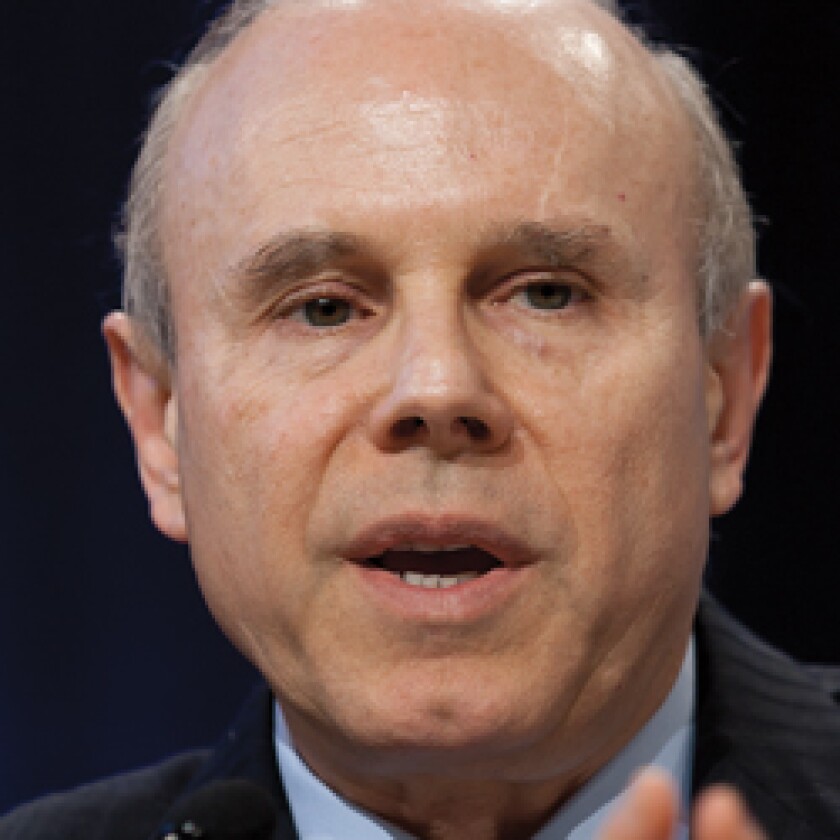Pressure was building last night on the leaders of the G20 countries to unveil a new programme of measures to boost growth in what would be seen as a significant move away from the policy of debt reduction.
The United States, several emerging markets and now a growing number of European countries are calling for the G20 to use its communiqué to take decisive action to underpin the global economy.
Brazil is teaming up with new French president François Hollande to press for measures to boost global economic growth, Emerging Markets can reveal.
Brazil has repeatedly argued that austerity policies are doomed to failure. Guido Mantega, Brazil’s finance minister, has renewed his criticism of the imposition of austerity measures in the crisis-ridden euro zone and has effectively backed Hollande’s critical stance towards German chancellor Angela Merkel’s ultra orthodox policies.
“It is very clear that the economic strategy that is being followed by the European nations is not working,” Mantega told Emerging Markets. He stressed the “need to reconcile” fiscal consolidation with stimuli for growth.
“In order to avoid a greater economic deterioration in the countries of Europe, where the fiscal situation has worsened while debt has increased, we must revise the economic strategy,” he said.
Mantega said Brazil would call on the G20 to stimulate the productive sector and to coordinate monetary and fiscal policy. “We believe that the European countries have realized that they should follow this advice,” he said.
He said there was a consensus among the BRICS countries on this issue. “There has been a common concern regarding growth and jobs for quite some time now,” a Brazilian government source added.
In the US, Barack Obama, who is running for re-election later this year, has also made public calls for ways to stimulate the global economy as well as for the resolution of the euro crisis.
Joseph Stiglitz, a leading critic of austerity stepped up his attack in an article in today’s Emerging Markets. The Nobel Laureate economist said the “central question” on the G20 agenda should be the revival of growth.
“No large economy has every recovered through austerity,” he writes. “There are some instances of small economies where exports compensated for reduced government spending – but that requires strong growth in one’s export partners, and with the global economy in the doldrums this is unlikely to happen.
“There is a viable growth and stability programme – it’s not based on a suicide pact of mutual austerity, and it can’t rely on just structural reforms. It entails a European wide banking system and mutual economic assistance.”
Charles Dallara, managing director of the Institute of International Finance, said Los Cabos was “undoubtedly” the most crucial heads of state meeting since London in 2009 for injecting significant confidence into markets.
Former British prime minister Gordon Brown, who chaired the London summit, said G20 leaders must “construct a global growth initiative for East and West”.
“For four years now Europe’s one-dimensional obsession with public debt meant it took its eyes off the seismic tremors in banking and quite failed to grasp the underlying structural problem: how to achieve growth within the current euro,” he said in a rare public statement.
“Already we are in the downward spiral that shows no sign of ending. Austerity means decreasing economic activity and then an ebbing of confidence.”
The World Bank added to the calls for a switch away from the austerity approach. In a report to the G20 that was due to be published on Tuesday but which was leaked over the weekend, it said that growth was “essential to a durable resolution of fiscal and debt-sustainability problems”.
“Austerity alone is not enough and the pace of fiscal consolidation needs to be carefully calibrated,” it said. “Addressing current challenges to global growth would be an appropriate and timely focus for the Los Cabos Action Plan.”
